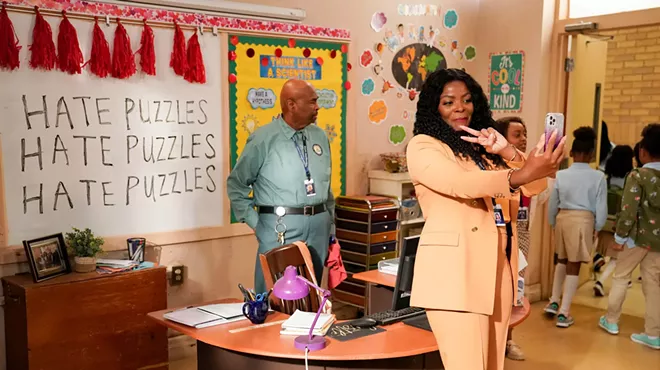The first time I heard a Mountain Goats song I was around 13 years old. My favorite author at the time recommended the band to his audience on numerous occasions, and I finally took a listen. I started with "This Year" and quickly found myself immersed in the world John Darnielle creates with every song he writes.
Whether Darnielle is detailing tumultuous relationships that end in divorce in songs like "No Children," or trying his hand at concept albums like Beat The Champ — The Mountain Goats' 15th studio album, all about professional wrestling — the words he uses flow into stories that can twist your heart in knots, make you break down in tears from laughing or change your outlook on life forever. Imagine my surprise when I learned that my favorite lyricist had two published books and another set to arrive in January this year.
Darnielle has a better understanding of words and how they interact with one another than most, and that became evident to me while reading his latest, Devil House. Hell, he's been writing fictional tales through song since the '90s — long-form storytelling was the obvious next step.
Devil House chronicles true-crime writer Gage Chandler on his exploration of a pair of notorious murders in a small California town. Gage purchases the house where the murders occurred and starts researching. Quickly he discovers there's more to the story than he initially thought, and he must embark on a journey of self-exploration in order to do what's right for his book and for the town.
I wasn't initially sold on the concept — I'm not huge into the true-crime sphere. I've tried listening to some true-crime podcasts, and they're just not for me. But Darnielle's clever and crafty style of writing was enough to keep me turning the pages of the hefty 400 page book for hours on end.
As I started getting more invested in the story, I realized that I was being taken through Gage's writing process along with him — the year would change abruptly, perspective would shift, and I would become disoriented only to realize that this was all intentional on Darnielle's part. Gage is notorious for putting himself in the center of the topic of his books, giving him that first-person perspective of what happened. And there I was, along on the journey through the mystery of the Devil House with Gage.
The meta-ness of the intertwining storylines leads the reader to question true crime as a genre: why we as humans are so fascinated with it, the ethics and morality of using real-life people in stories the author will benefit from financially, and the nature of knowledge itself. The sentiment and unique structure echo Darnielle's songwriting, pulling one in and spitting them back out only to leave them questioning where they began and where they ended up. I'm not sure any other author could pull off something like Devil House.
There's a line in one of my favorite Mountain Goats songs, "Going to Georgia," that encapsulates how I feel about Darnielle's writing: "The most remarkable thing about you standing in the doorway is that it's you, and that you're standing in the doorway."
After nearly a decade of poring over the lyrics of Darnielle's songs and carrying them with me through the various chapters of my life, it didn't come as a surprise to me that Devil House followed the natural progression of my maturing interests and ideals because the most remarkable thing about Darnielle's writing is that it's Darnielle, and he's writing. And it's bound to be phenomenal. ♦























